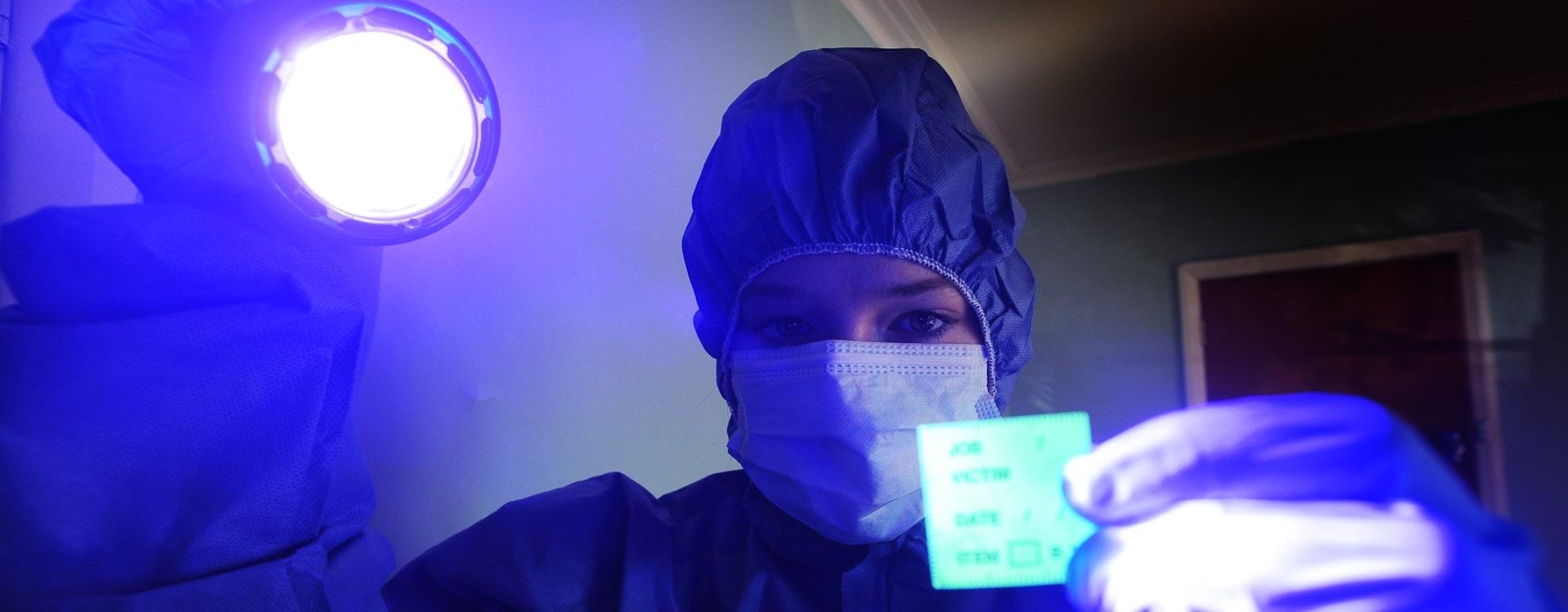The Victoria Police Forensic Services Department (VPFSD), under the Executive Director, has over 500 staff.
This is made up of a combination of forensic officers (mostly scientists) and sworn police members. The department is also made up of public service staff who provide business, logistics and maintenance support.
The VPFSD provide more than 100,000 examinations per year. These results include more than 2,300 DNA links and 10,000 fingerprint links.
The VPFSD is accredited by the National Association of Testing Authorities (NATA). Most of our work is scene examinations, exhibit examinations and assisting the criminal justice system.
Crime scene examinations
Forensic staff attend and examine many serious crime scenes such as:
- homicides
- suspicious fires and explosions
- clandestine drug laboratories
- cannabis crops
- serious vehicle collisions
- natural disaster or mass-casualty incidents.
Exhibit examinations
Exhibits are physical evidence that are collected from the scene. They can also be collected from people such as suspects, complainants and deceased and convicted persons.
Assistance to the courts
Forensic staff aid the courts and the justice process through written reports or in-person testimony.
The aim of a forensic expert's testimony is to provide unbiased evidence that can assist the court to understand what occurred.
It is up to the trier of fact, usually the jury, to decide if the evidence is understandable, reliable, and how much weight the evidence has.
Areas of forensic science
Employment pathways
Information about pathways into a forensic services career can be found on our Employment and students page.
Speaker requests
Each year the Forensic Services Department receives a number of requests for speakers. Only a limited number of these are able to be met.
Make a request
To make a request, please provide the following details via email (see contact details at the bottom of this page):
- community group name, or school name and year level
- location
- approximate number in group
- preferred dates and times
- contact name
- contact phone number
- if a Working with Children Check is required.
If your request is successful you should be contacted soon after making the request.
Tours
It is not possible for community, school groups or individuals to visit the high-security Forensic Services Department facilities.
Resources
The ANZPAA National Institute of Forensic Science advises and assists with the development and coordination of forensic science services in Australia.
The Victorian Institute of Forensic Medicine (VIFM)(opens in a new window) is part of the Coronial Services Centre in South Melbourne. One function of the VIFM is to determine the medical cause of death, and it employs medical staff, toxicologists and biologists with this aim in mind.
Autopsies are performed by doctors who have specialised in pathology, and the scientists analyse samples taken from the body.
VIFM also performs civil paternity testing for the courts and has medical practitioners who specialise in clinical forensic medicine.
This simplified guide to forensic science(opens in a new window) has been created by the National Forensic Science Technology Centre (USA).
Contact
The Forensic Services Department has dedicated email addresses:
- student and career enquiries, requests for forensic speakers for schools and community groups: trainingunit-fsd-oic@police.vic.gov.au
- post graduate student supervisors, or to discuss possible research projects: FSD-OCFS-MGR@police.vic.gov.au
- compliments and complaints: quality-fsd-mgr@police.vic.gov.au
- general enquiries: quality-fsd-mgr@police.vic.gov.au.
If you require your fingerprints to be taken for a police record check, please contact the Public Enquiry Service by:
- phone: 1300 881 596
- email: publicenquiryservice@police.vic.gov.au
Updated
